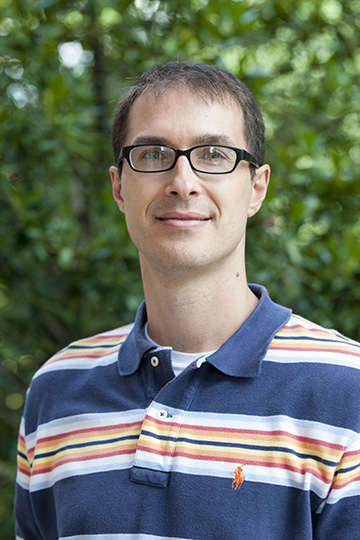
Position: Assistant Professor of Sociology
Teaching at Samford since: 2013
Bonus fact: Stokes’ previous roles at Samford include Scholar-in-Residence and residence life professional.
Why do you teach? Why do you teach at Samford? I have the best job in the world. I feel like I was made to teach, and I love it. And, Samford is like my “Hogwarts.” I’m the first from my family to attend college, so the world really opened up to me in new ways at Samford. I was also fortunate to be at Samford during the Cornerstone program (a precursor to the Fellows program), and the learning environment was pretty magical. Being back at Samford as faculty is a dream come true.
What is one thing you want your students to know when they graduate from Samford? That what they do with the ordinary parts of their lives makes such a difference. Some of our students will go on to do extraordinary things, and that’s wonderful. But, everyday choices to be a good friend, spouse or parent transform our world as profoundly as great deeds. Not everyone can have his or her name written in history books, but anyone can cultivate good character and healthy relationships. Our Christian faith teaches us that those achievements last forever.
What is your favorite hobby? Tromping through the forest and breathing fresh, clean air recharges me like nothing else. If I can find some water to play in while I’m in the woods, then that’s even better. It’s not quite the same as the wild woods, but the Botanical Gardens is one of my favorite spots in Birmingham. When I’m at the gardens, I spend a little time with the roses before making my way back to some of the more untamed parts.
How did your background prepare you for your current role at Samford? Being a former Samford student, I understand the Samford experience intuitively, though some things have certainly changed. My time at Beeson Divinity School helped me integrate my faith in my teaching and research in deep ways. The University of Texas was a change of pace, but a good one. It was a wonderfully diverse place, and I received excellent training in my discipline. But, my time there also confirmed what a special place Samford is and made me desire even more strongly to return.
What is it like being on the faculty after having attended Samford as an undergraduate student? Overall, it’s wonderful. Samford is my home in many ways, and I try to help make it a home for students during their few years here. I also worked for 10 years in residence life at Samford, so I was able to get a good feel for the diversity of our students. That work probably helps me now even more than my own time as an undergrad. Still, I sometimes worry that I assume too much about our students based on my experiences. The way students interact with technology is different than when I was a student or serving with residence life. I’m not sure I’ll ever get a handle on that rapidly changing situation.
You are taking some interesting approaches to teaching sociology, such as incorporating Disney into a course. Why is that innovative approach important? I’m always tinkering with my courses; I’d get bored if I didn’t. I think innovation is important for student learning as well. Society is always changing, so it’s important to stay current and help students relate the core concepts with their everyday world. My first couple years on faculty, I noticed that Disney was an important part of students’ world of ideas and emotions. They frequently referenced Disney in class discussions, identified with common Disney storylines, and aspired to Disney-related careers (even if only as a dream job). I had grown up with Disney, too, but this was different. I designed the Disney course because I wanted to learn more about why Disney was so pervasive in student culture and to teach sociology in a context that would attract more students. The first Disney course filled up quickly and was a great success. As long as the student interest is there, I’ll try to continue to offer it.
What’s one thing that most students do not know about you? I love to play. Playing sports is part of it, but I also love to play-act dramas with my kids, or play board games (Settlers of Catan is my favorite), group games and video games. My son recently had a birthday party where the kids played a tag game with Nerf guns. I got to play along, and I think I enjoyed it as much as the kids.
You are very involved with the growing Catholic community on the Samford campus. How is that evolving? Working with the Catholic community at Samford has been one of the most fulfilling, and unexpected, blessings of my last four years. When I was a student, I only knew a couple of Catholics, and there was no Catholic Student Association. As Samford has grown and become more diverse nationally and internationally, the Catholic community has blossomed. We have an incredible group of student leaders who love Jesus and love to serve others. My own personal prayer is that, as our Catholic community grows, Samford will be a model of Christian unity, cooperation and understanding.
